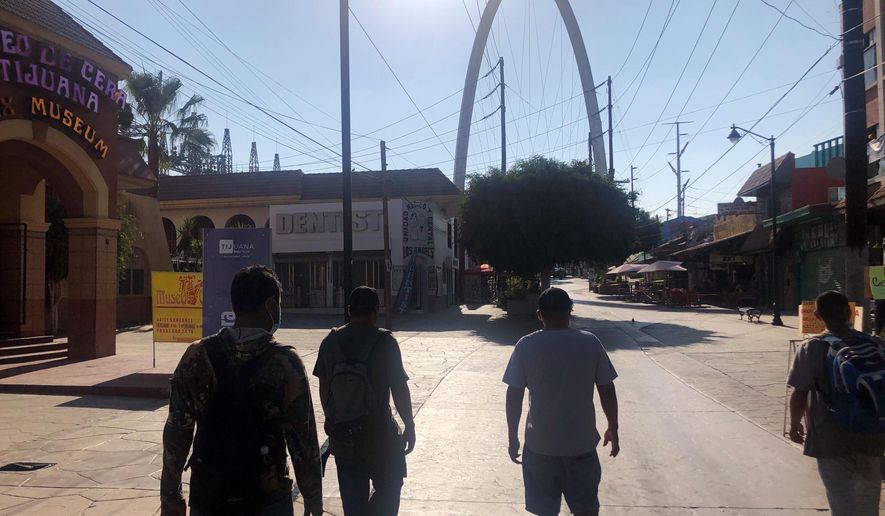Illegal immigrants have only limited grounds to appeal deportation orders to the federal courts, the Supreme Court ruled Monday.
The 5-4 decision applies to cases where someone has been ordered deported but then seeks special relief from immigration authorities.
The justices said the immigration authorities’ decisions on the facts of the case are final and cannot be appealed to federal courts. Courts can still weigh in on cases involving matters of law.
Justice Amy Coney Barrett, writing the majority opinion, said the way Congress wrote the law governing relief from deportation bars court “review of any judgment regarding the granting of relief.”
“This plainly includes factual findings,” she wrote.
The case before the justices involved Pankajkumar Patel, an illegal immigrant who’s been in the U.S. now for nearly three decades. About 15 years ago he sought to try to legalize, but while doing so falsely checked on a driver’s license application in Georgia that he was an American citizen.
SEE ALSO: Biden unveils regulatory steps aimed at housing shortfall
His legalization case was denied, and the government then moved to deport him. He agreed he was deportable, but argued for leniency in a case before the immigration courts, which are an administrative branch within the Justice Department.
Mr. Patel claimed he made an innocent mistake on the driver’s license application, but the immigration judge found otherwise, saying Mr. Patel was generally “evasive” in explaining how he’d claimed citizenship, and that other parts of his story didn’t check out. The judge also saw a pattern, concluding that Mr. Patel had previously misrepresented his means of entering the U.S. on an asylum application.
Mr. Patel said that was a serious error in fact-finding, and he said that’s the sort of thing the regular independent federal courts should be allowed to review.
The Biden administration had largely sided with Mr. Patel, saying courts should have the leeway to intervene if they see immigration judges botching cases.
With the government and the chief plaintiff in agreement, the high court appointed an amicus, Taylor A.R. Meehan, to argue the case for the other side, and she prevailed.
Justice Neil M. Gorsuch led the dissent, in an opinion scolding his colleagues for turning immigration judges into an unaccountable legal behemoth.
SEE ALSO: 87% of American voters want corporations out of politics, poll shows
“Perhaps some would welcome a world like that. But it is hardly the world Congress ordained,” he wrote, joined by the court’s three Democrat-appointed members.
The case turned on language Congress wrote into the law saying “no court shall have jurisdiction to review” immigration authorities’ decisions on whether to grant relief from deportation.
Justice Barrett said that seemed a categorical bar on reviewing facts, but Justice Gorsuch read it differently, saying the majority “seeks to cram a veritable legislative zoo into one clause of one subparagraph of one subsection of our nation’s vast immigration laws.”
Liberal activists denounced the ruling, with People for the American Way saying it was part of a “scorched-earth campaign against a wide range of our rights and freedoms.”
“Today the victims are immigrants to this country, who are being stripped of their right to a day in court to resolve unjust administrative hurdles related to their status. This Court becomes more extreme and dangerous by the day,” said Ben Jealous, PFAW’s president.
• Stephen Dinan can be reached at sdinan@washingtontimes.com.




Please read our comment policy before commenting.